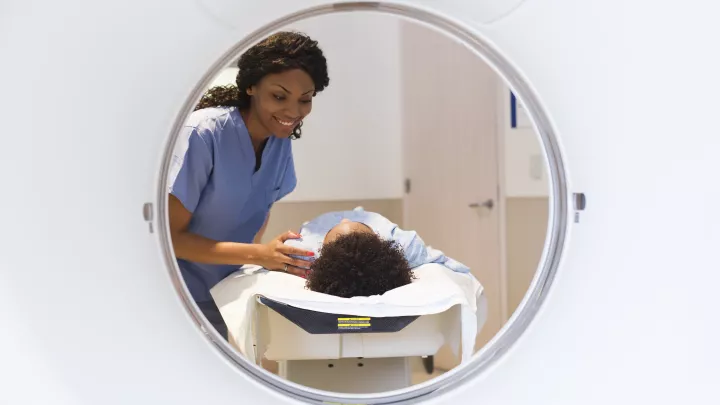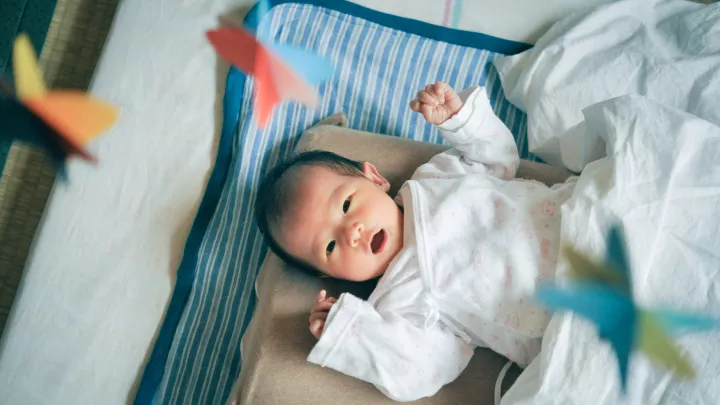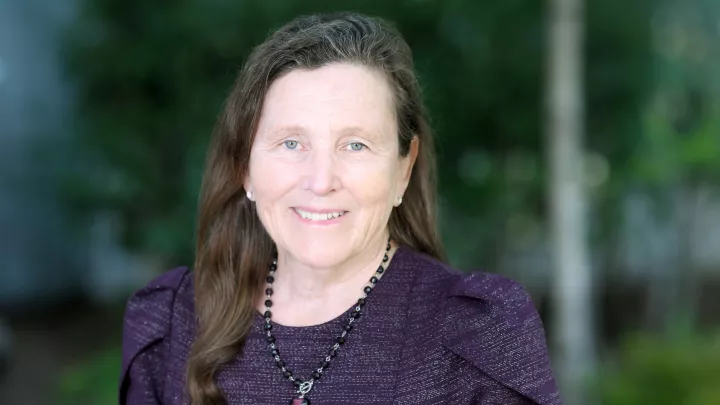Bronchopulmonary Dysplasia Clinic
Bronchopulmonary dysplasia (BPD) is a lung condition that affects infant lung development and breathing, most often in premature or low-weight babies. The outpatient Bronchopulmonary Dysplasia Clinic provides ongoing infant lung disease care after your child leaves the hospital.
In addition to treating the lungs, our multidisciplinary team manages other complications of BPD that may develop during childhood. At the BPD Clinic, your child can see multiple specialists during the same clinic visit, all in one place.
Bronchopulmonary Dysplasia Clinic: Why Choose Us
The Bronchopulmonary Dysplasia Clinic is a specialized outpatient clinic within the Pulmonology and Sleep Medicine Program at Children’s Hospital. U.S. News & World Report ranks our pulmonology (lung) and neonatal (newborn) services among the top in the nation. You can count on us for expert BPD care.
At our Bronchopulmonary Dysplasia Clinic, we offer:
- Continuity of care: Many of our specialists work in both our Newborn and Infant Critical Care Unit (NICCU) and our BPD Clinic. If your child receives critical care at CHLA, we are already familiar with your child’s health condition. You will also see many of the same faces throughout your child’s care.
- A seamless transition: We facilitate a smooth shift from critical care at CHLA or other hospitals to our BPD Clinic. A pulmonologist (lung doctor) reviews every referral and makes sure your child sees the right specialists at your first appointment. For babies in the CHLA NICCU, our dedicated inpatient and outpatient nurse care managers assist with the transition to the BPD clinic. These nurse care managers help coordinate services and support your family.
- Convenient treatment: We have a team of experts within the BPD clinic, including pulmonologists, a dietitian, a feeding therapist and a dedicated gastroenterologist (digestive specialist). Your child sees multiple specialists (as needed) during the same clinic visit.
- Individualized approach: We specialize in treating severe bronchopulmonary dysplasia, but we create treatment plans that address your child’s entire well-being. Depending on your child’s needs, we coordinate visits with additional CHLA health care providers, such as brain and heart doctors.
- Long-term care: We typically see infants and children in our clinic starting 1-2 months after they leave the hospital. Our specialists follow up regularly with in-person or virtual visits. We provide ongoing monitoring and care, even after your child’s health improves. And we help your child transition to a pediatric pulmonologist when appropriate.
Making an Appointment
To make an appointment at the BPD Clinic, you need a referral from your child’s doctor. This referral can come from your child’s neonatologist or pediatrician. Our BPD Clinic nurse care manager may contact you before your clinic visit for additional information.
What to Expect During Your First Visit
Your first appointment at the Bronchopulmonary Dysplasia Clinic lasts about 2 hours. Your family sees multiple specialists during this appointment. At the end of your visit, we provide a comprehensive report on your child’s health with treatment recommendations.
What to bring
Please bring your child’s hospital discharge summary and a CD of any prior radiology (imaging) tests. Although written radiology reports are helpful, seeing the original images helps our BPD team develop the best care plan.
Please also bring contact information for your child’s pediatrician. We keep your child’s primary doctor involved throughout care.
Specialists you’ll see
Each member of our team spends about 30 minutes with your family. At minimum, you will meet with a:
- Pulmonologist: Pulmonologists are doctors with expertise in infant lung disease and breathing problems. They know exactly how the lungs and breathing system work and develop. A pulmonologist will be your child’s main doctor managing BPD once discharged from the hospital.
- Registered dietitian: Nutrition is a key element in supporting your child’s lungs, health and growth. Our registered dietitian makes sure your child gets the nutrients and vitamins needed to grow and thrive. Dietitians help plan feeding schedules, caloric and fluid intake and the transition from formula to food.
- Nurse care manager: Our nurse care manager is your primary point of contact throughout your child’s care. The nurse care manager answers your questions and helps coordinate everything from appointments to medical equipment.
- Social worker: Our compassionate social workers help you navigate the challenges of your child’s care. They provide support and connect you with hospital and community resources as needed.
- Respiratory therapist: These therapists help in providing care by teaching how to use inhalers, nebulizer medications and therapies to help move mucus from lungs. They also help by assessing ventilator or oxygen based on what child is on along with child’s lung doctor.
Depending on your child’s needs, you may also meet with a:
- Feeding therapist: Infant feeding therapists do a swallowing assessment to make sure your child doesn’t get food in the lungs while eating. In collaboration with dietitians, they help your child figure out how to eat safely and provide guidance for your family on feeding by mouth at home.
- Gastroenterologist: A gastroenterologist (digestive specialist doctor) treats any digestive, swallowing and nutrition concerns in babies with BPD. For example, your child may have reflux, trouble digesting food or constipation and managing their feeds especially if given via tube in the stomach.
Babies with BPD, especially severe bronchopulmonary dysplasia, may need the expertise of other doctors in addition to our team. We connect your child with heart, kidney, musculoskeletal and brain specialists as needed. We may also recommend physical or occupational therapy to optimize your child’s development with this infant lung disease.
Tests your child may get
We do several tests to help diagnose any problems and better understand how your child’s lungs are working. Our diagnostic tests may include:
- Airway evaluation
- Blood tests
- Chest X-ray
- Echocardiogram
- Sleep study
- Swallow evaluation
Our specialists also monitor your child’s weight gain and height over time. This growth directly correlates with lung development.
Bronchopulmonary Dysplasia Care at Children’s Hospital Los Angeles
We provide ongoing, comprehensive treatment for BPD at the Bronchopulmonary Dysplasia Clinic. Meet our expert team.
To schedule an appointment with our specialists, please call 323-361-2287.


